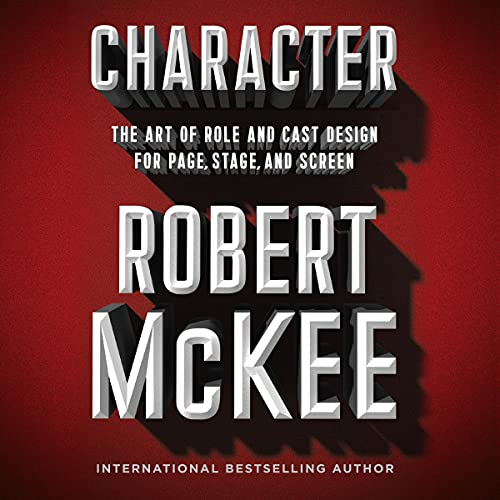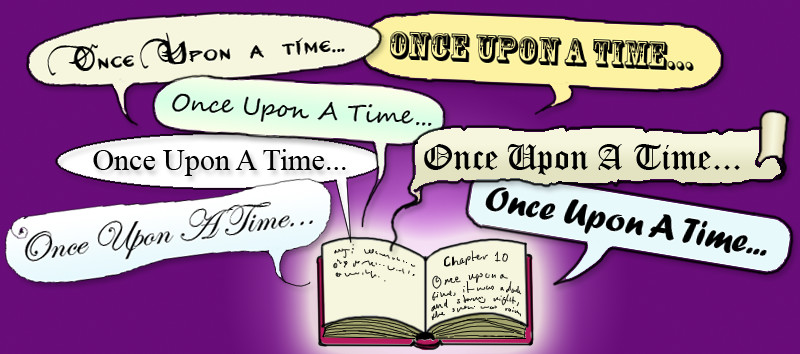The Art Of Interpretation: Analyzing Character Voices In Audiobooks
Ever wondered how the voices in audiobooks bring characters to life? Welcome to the captivating world of “The Art of Interpretation: Analyzing Character Voices in Audiobooks.” In this article, we will delve into the intricacies of audiobook narration and explore how talented voice actors breathe life into the pages of our favorite stories. So, grab your headphones and prepare to embark on an auditory adventure like no other!
When you listen to an audiobook, it’s not just about the story itself—it’s about the way it’s told. The voice behind the words has the power to transport you to different worlds, evoke emotions, and create a connection between the listener and the characters. Through their unique interpretations, voice actors have the ability to make characters come alive, each with their own distinct voice, accent, and personality. It’s an art form that requires skill, creativity, and a deep understanding of the story and its characters. So, let’s dive into the fascinating realm of character voices in audiobooks and discover the magic that lies within.
The Art of Interpretation: Analyzing Character Voices in Audiobooks is a fascinating aspect of the audiobook experience. With skilled narrators bringing various characters to life, listeners can delve deeper into the story. By analyzing character voices, listeners can gain insights into the personalities, emotions, and motivations of the characters. This adds depth and richness to the overall listening experience. Whether it’s a distinct accent, tone, or cadence, character voices provide a unique perspective that enhances the storytelling process.

The Art of Interpretation: Analyzing Character Voices in Audiobooks
Audiobooks have become increasingly popular in recent years, allowing readers to enjoy their favorite stories in a whole new way. One of the key elements that brings these stories to life is the art of interpretation, particularly when it comes to analyzing the voices of the characters. In this article, we will explore the intricacies of character voice interpretation in audiobooks and how it enhances the overall listening experience.
The Importance of Character Voice Interpretation
When listening to an audiobook, the narrator’s interpretation of the characters’ voices plays a crucial role in capturing the essence of the story. Each character has their own unique personality, and the way their voice is portrayed can greatly impact the listener’s perception and understanding of the narrative. A skilled narrator can bring depth, emotion, and authenticity to each character, making them feel like real individuals rather than mere words on a page.
Character voice interpretation also helps to distinguish between different characters, particularly in dialogue-heavy scenes. By utilizing different tones, accents, and speech patterns, the narrator can clearly differentiate between characters, allowing the listener to easily follow along and identify who is speaking. This adds a layer of clarity to the story and prevents confusion, further immersing the listener in the world of the audiobook.
Bringing Characters to Life Through Voice
One of the most fascinating aspects of character voice interpretation is how it can breathe life into the story. A talented narrator can capture the nuances of a character’s personality through their voice, creating a vivid and memorable portrayal. Whether it’s a gruff and rugged voice for a tough protagonist or a soft and gentle voice for a delicate side character, the narrator’s interpretation can enhance the listener’s connection to the story and its characters.
Moreover, character voice interpretation can also convey emotions and moods. A skilled narrator can modulate their tone, pitch, and pacing to reflect the emotions of the characters in different situations. This adds depth and realism to the story, allowing the listener to experience the full range of emotions alongside the characters. It creates a more immersive and engaging listening experience, making the audiobook truly come alive.
In addition to emotions, character voice interpretation can also convey important information about a character’s background, culture, or social status. Accents and dialects can provide valuable context and contribute to the overall understanding of the story. By paying attention to these subtle details, listeners can gain a deeper appreciation for the narrative and its characters.
The Challenges and Rewards of Character Voice Interpretation
While character voice interpretation is an art form, it is not without its challenges. Narrators must carefully navigate the fine line between staying true to the author’s intent and bringing their own creative interpretation to the characters. Striking the right balance is essential to ensure that the voices align with the story and the author’s vision, while still adding a unique touch.
Another challenge lies in the sheer number of characters that may appear in a single audiobook. Narrators must be able to create distinct voices for each character to avoid confusion for the listener. This requires careful planning and preparation, as well as the ability to switch seamlessly between different voices throughout the narration.
Despite the challenges, the rewards of character voice interpretation are immense. A well-executed interpretation can elevate the audiobook to new heights, captivating listeners and leaving a lasting impression. It adds depth, richness, and dimension to the story, transforming it into a truly immersive experience. The ability to bring characters to life through voice is a testament to the artistry and skill of the narrator, enhancing the overall enjoyment of the audiobook.
The Role of Collaboration in Character Voice Interpretation
Character voice interpretation is not solely the responsibility of the narrator. Collaboration between the author, narrator, and audiobook producer is crucial to ensure that the voices align with the author’s vision and the overall tone of the story. This collaboration allows for a deeper understanding of the characters and their motivations, enabling the narrator to deliver a more authentic and compelling performance.
Through open communication and shared creativity, the author, narrator, and producer can work together to refine the character voices and bring them to life in the most effective way. This collaborative process ensures that the audiobook stays true to the original work while also adding a fresh and engaging interpretation.
In conclusion, the art of character voice interpretation in audiobooks is a vital component that enhances the listening experience. It brings depth, authenticity, and emotion to the characters, immersing the listener in the story and making it come alive. Through skilled interpretation, narrators have the power to captivate and engage listeners, creating a truly memorable audiobook experience. So, the next time you listen to an audiobook, pay attention to the voices of the characters and appreciate the artistry behind their interpretation.
Key Takeaways: The Art of Interpretation – Analyzing Character Voices in Audiobooks
- Character voices in audiobooks bring the story to life and help listeners differentiate between different characters.
- Interpretation of character voices involves understanding the personality, emotions, and motivations of each character.
- Good voice actors use tone, pitch, accent, and pacing to create unique voices for each character.
- Character voices can enhance the listener’s understanding of the story and make it more engaging.
- Analyzing character voices in audiobooks helps us appreciate the artistry and skill of voice actors.
Frequently Asked Questions
1. How important are character voices in audiobooks?
Character voices play a crucial role in audiobooks as they bring the story to life and enhance the overall listening experience. A skilled narrator is able to use different tones, accents, and inflections to differentiate between characters, making it easier for the listener to follow the dialogue and immerse themselves in the story. By giving each character a distinct voice, the narrator helps the audience connect with the characters on a deeper level, making the overall storytelling more engaging and memorable.
Moreover, character voices can also provide valuable insights into the personality and traits of each character. The way a character speaks, their tone, and their accent can reveal information about their background, social status, emotions, and even their motivations. This adds depth and complexity to the character, allowing the listener to form a more comprehensive understanding of the story and its inhabitants.
2. What makes a good character voice in an audiobook?
A good character voice in an audiobook is one that is distinct, consistent, and authentic. It should be able to capture the essence of the character and effectively convey their emotions, personality, and intentions. The voice should be able to engage the listener and make them believe in the character’s existence.
Additionally, a good character voice should be able to differentiate between various characters in the story. Each character should have a unique voice that reflects their individuality and helps the listener easily identify who is speaking. This can be achieved through variations in pitch, tone, accent, and pacing.
3. How does a narrator approach analyzing character voices in audiobooks?
When analyzing character voices in audiobooks, a narrator takes into consideration various aspects. Firstly, they carefully read the text to understand the character’s personality, background, and motivations. This helps them determine how the character should sound and behave.
The narrator also considers the author’s intentions and any specific instructions provided in the text. They may research the time period, geographical location, or cultural context of the story to ensure the character’s voice is accurate and appropriate.
4. Can character voices in audiobooks enhance the storytelling experience?
Absolutely! Character voices in audiobooks have the power to greatly enhance the storytelling experience. By giving each character a distinct voice, the narrator helps the listener easily distinguish between different characters, making it easier to follow the story and stay engaged.
Furthermore, character voices can add depth and dimension to the story. They can evoke emotions, highlight the nuances of the dialogue, and bring the characters to life in a way that written text alone may not achieve. The listener can feel more connected to the characters and become fully immersed in the narrative.
5. What impact can character voices have on the overall enjoyment of an audiobook?
Character voices can have a significant impact on the overall enjoyment of an audiobook. A well-executed character voice can make the story more captivating, entertaining, and memorable. It allows the listener to form a stronger connection with the characters, making the experience more immersive and enjoyable.
On the other hand, poorly executed character voices can be distracting and diminish the overall enjoyment of the audiobook. Inconsistent or unconvincing voices may confuse the listener and disrupt their engagement with the story. Therefore, the careful selection and skillful execution of character voices are essential for creating a truly enjoyable audiobook experience.

Audiobook Characters and Voices with Matt Haynes
Final Summary: The Magic of Character Voices in Audiobooks
As we delve into the world of audiobooks, we discover the art of interpretation and the power of character voices. The voices that bring the written word to life, infusing each character with personality, emotions, and depth. In this article, we explored the importance of analyzing character voices in audiobooks and how it enhances the overall listening experience.
Throughout our journey, we learned that character voices serve as a gateway to the story, providing a unique perspective and immersing us in the narrative. The skilled narrators, with their ability to seamlessly transition between different voices, breathe life into the characters, making them feel real and relatable. We discovered that the art of interpretation goes beyond simply reading the words on a page; it involves understanding the nuances of each character, their motivations, and their journey.
By analyzing character voices in audiobooks, we gain a deeper understanding of the story and its intricacies. We are able to appreciate the nuances and subtleties that may have gone unnoticed in a traditional reading experience. The power of voice acting lies in its ability to evoke emotions, create tension, and transport us to different worlds. It adds another layer of richness to the storytelling, making it a truly immersive and captivating experience.
So, the next time you embark on an audiobook adventure, pay close attention to the character voices. Listen as the narrator brings each character to life and marvel at the art of interpretation. Let the voices transport you to new worlds, evoke a range of emotions, and leave you with a lasting impression. The magic of character voices in audiobooks is undeniable, and it’s an art form that deserves to be celebrated and appreciated. Happy listening!




